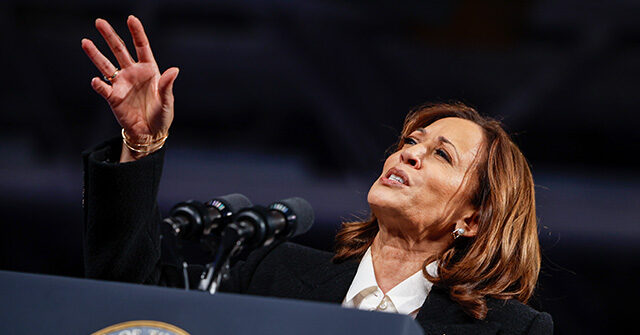During a recent interview on Fox News Channel’s “Special Report,” Vice President Kamala Harris addressed criticisms surrounding the Biden administration’s Iran sanctions policy, particularly the perception that it has inadvertently allowed significant oil profits to flow into Iran. Instead of addressing the criticism directly, Harris shifted the focus onto her Republican opponent, former President Donald Trump. She emphasized the consequences of his decision to withdraw from the Iran nuclear deal, asserting that this action destabilized efforts to contain Iran’s influence. Notably, she highlighted an incident during Trump’s presidency when an American military base was attacked by Iran, leading to serious injuries among U.S. soldiers—an event Trump reportedly downplayed by referring to the injuries as mere headaches.
Harris argued that her administration has taken steps to support Israel’s self-defense against Iran, indicating a commitment to strengthen regional security. She engaged in a back-and-forth with host Bret Baier, who pressed her on the criticisms concerning the enforcement of sanctions. Harris attempted to redirect the conversation towards the broader implications of Trump’s actions on national security and military readiness, citing his dismissive remarks about military personnel and questioning his commitment to the nation’s armed forces. The dialogue underscored differing perspectives on foreign policy and military engagement, with Harris seeking to position herself as the candidate who prioritizes a strong and respectful approach to military and geopolitical challenges.
As the discussion progressed, Baier attempted to moderate the exchange but was met with frequent interruptions from Harris. She emphasized the need for a conversation rooted in a comprehensive understanding of the facts while highlighting the importance of presenting voters with clear choices in the upcoming election. This insistence on factual discourse reflected her strategy of countering criticism by framing the issue within the broader context of presidential choices and their implications for national security. By doing so, Harris aimed to clarify the distinctions between her administration’s approach and the previous administration’s policies, specifically regarding Iran.
Towards the end of the interview, Baier noted the mounting tension and indicated that the conversation would need to conclude. His attempt to refocus the discussion signified the challenges of maintaining a constructive dialogue amid contrasting viewpoints. Harris’s comments about the need for a fact-based conversation encapsulated her broader campaign strategies, wherein she aims to invoke the contrast not only between her and Trump but also between the policies of the current administration and those of its predecessor. The abrupt ending of the interview left many questions unresolved, emphasizing the complexities of addressing contentious issues like foreign policy in a charged political landscape.
Throughout the exchange, Harris’s responses showcased her commitment to countering political narratives that criticize the Biden administration, particularly regarding its handling of Iran. Her references to Trump’s past actions served as a strategic pivot, highlighting the perceived failures of his administration while attempting to convey the achievements and commitments of her own. In framing the discussion in terms of choices and consequences, Harris aimed to appeal to voters’ sensibilities about leadership, military respect, and international relations.
In conclusion, the interview not only spotlighted key areas of contention between the Biden administration and its critics but also illustrated the broader themes that will likely define the 2024 presidential election campaign. Harris’s insistence on skillful debate and fact-based discussions reflects her strategy to resonate with supporters while navigating the criticisms levied against her party. Ultimately, the discussion underscored the critical importance of foreign policy in shaping electoral outcomes and the pivotal role candidates play in influencing public perception through their statements and approaches to complex international issues.

